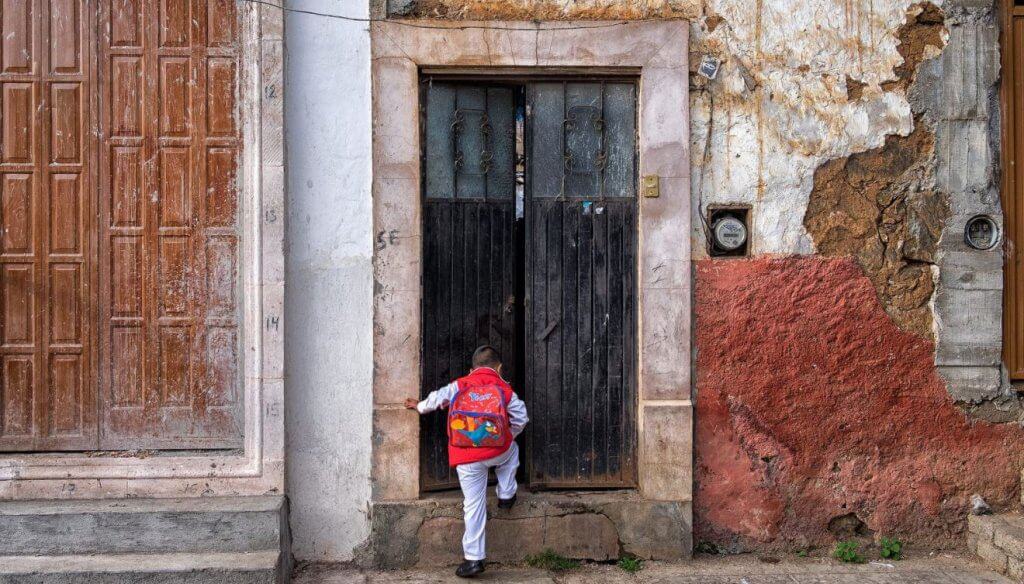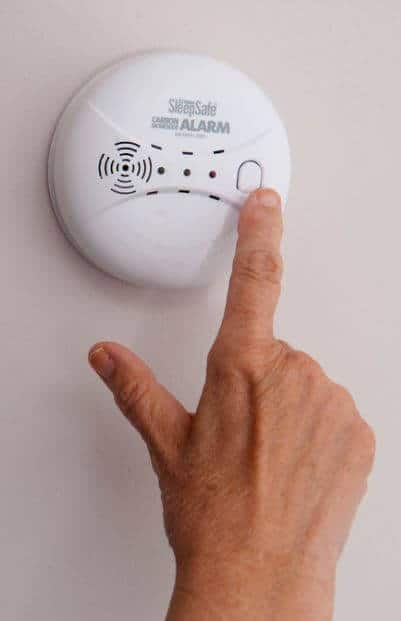Teaching Kids Security at Home

As a homeowner, you’ve likely taken steps to ensure the safety of your home and your family. Whether it’s the installment of a security system, putting passwords on electronic devices, or owning a safe to keep valuable goods, there’s probably something you do to protect yourself and your family.
But, have you ever taken the time to loop your children in and teach them how they can be conscious of safety at home, too?
In a time where the frequent use of technology has pushed everyone’s life to become more transparent, educating your children on security at home has never been more important, and the cliché saying, “it’s better to be safe than sorry,” has never been more fitting.
Here are some ideas for topics you should talk to your children about and how you can teach them habits that will help them play a role in the protection of your home and your family.
Lock the Doors

Teach your children how to lock and deadbolt the doors in your home, and let them know in which instances they should do this - you don’t want to end up locked out of your house!
Internet Safety
A place where children can become the most vulnerable is the internet and that’s why this is perhaps one of the most important topics to talk about with yours.
The first step in this process is becoming familiar with the internet and the social media sites your child wants permission to use. GetNetWise is an excellent source for parents who want to stay up to date on what’s happening on these sites.
Once you’ve become educated and stepped into the cyber world yourself, set some ground rules children must follow and try to find a way to monitor their internet activity by doing things like limiting time spent online and applying restrictions - which are available through Safari, Google Chrome, Internet Explorer and FireFox.
Teach your children to not open emails or messages from people they don’t know and to never meet up with someone they met online.
Lastly, and in accordance with the rest of the security-ensuring habits in this article, teach your kids to not share any information with anyone asking for it on the internet, especially not without adult permission. It can be easy to fall into traps on social media sites, and therefore monitoring usage is so important. Continue the conversation with your child and remind them of this.
Answering the Door
 Remind your kids to be cautious of answering the door alone when they don’t know who is on the other side, especially if they are old enough to be home alone. Encourage them to only answer the door when an adult is present and to never give information to anyone without confirming with an adult that it’s okay.
Remind your kids to be cautious of answering the door alone when they don’t know who is on the other side, especially if they are old enough to be home alone. Encourage them to only answer the door when an adult is present and to never give information to anyone without confirming with an adult that it’s okay.
To increase security, consider installing a peephole in your front door so whoever is answering the door can see who is there before opening it. If a child is home alone and the person knocking doesn’t go away, make sure they have access to a reliable emergency contact list so they can call for help.
Answering the Phone
Assuming you feel comfortable enough to have your child answer the phone, remind them that, just like when answering the door, they should never give out personal information to a caller asking for it without receiving permission from an adult.
If the caller is asking to speak to the child’s parents, they should ask to take a message or have the caller try to reach them at another time.
Emergency Contacts and First Aid Kits
Write down and post an emergency contact list that your children can use when they need help that isn’t serious enough for 9-1-1. Keep this list in a place your children are able to easily access. Also, have a first aid kit in an accessible place and teach your children how to use the material in it.
How to Operate the Home Security System
 If you have equipped your home with its own security system, it’s important to teach your child how to use it. Teach them what different alerts mean so they can be trusted in case of an emergency and so they will be aware of how to respond to certain alerts.
If you have equipped your home with its own security system, it’s important to teach your child how to use it. Teach them what different alerts mean so they can be trusted in case of an emergency and so they will be aware of how to respond to certain alerts.
In addition, your child should also know how to arm and disarm the system so they are able to let themselves and trusted visitors in the house. Teach them how to use the keypad and what buttons to push in which circumstances. Make sure they know to never disarm the system for people they don’t know without getting permission from a trusted adult.
Another important thing to teach your child about your home security system is to never share information they know about it with anyone outside the family. The passcodes and/or safe words should not be shared with anyone - not even friends.
Rules for Staying Home Alone
If your child is old enough to stay home alone, develop some ground rules. Although some of these might be more individualized, one that should be heavily considered is that the doors of the home remain locked at all times. Other recommendations are to limit or restrict the number of visitors your child can have in the home and if they can leave the home.
Quick Escapes
In the unfortunate instance of an actual emergency that occurs in your home, you will want to know the fastest evacuation route. Brainstorm with your children the shortest routes. Write them down and practice them.







Leave a Reply